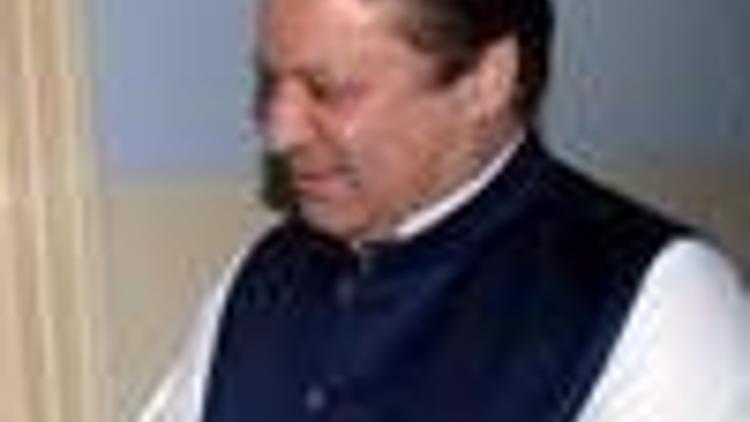Pakistan ex-PM Sharif defies house arrest
Güncelleme Tarihi:

Pakistan’s main opposition leader Nawaz Sharif urged a defiant crowd in Lahore to ignore a ban and march on the capital after breaking house arrest, in a direct challenge to the government. (UPDATED)
The former prime minister, who has emerged as the country’s most popular political leader, has joined forces with lawyers pushing for President Asif Ali Zardari to reinstate judges deposed by ex-military ruler Pervez Musharraf.
Sharif, who was barred from running for office by the Supreme Court on February 25, has been the main figurehead for a mass anti-government protest scheduled to march from the eastern city of
"We don’t accept this decision. The house arrest is illegal and immoral. All these decisions are unconstitutional," he told a crowd.
"Come and join me. I am leaving the house. The time has come to march hand in hand," said Sharif.
His SUV inched out of the compound gates in a convoy with security vans, accompanied by private guards and hundreds of supporters, who punched their fists in the air as they streamed through the streets.
Police were not immediately reachable for comment, but said earlier that Sharif was under a three-day house arrest at his
Facing the worst political crisis of his rule, Zardari has ordered a countrywide crackdown, banning protests, forcibly detaining activists and blocking provincial borders in a move that provoked wide concern in the West.
The turmoil could not come at a worse time for the nuclear-armed Muslim nation, a central front in
Riot police earlier fired tear gas in General Post Office Square, where Sharif said he was heading to join the crowd, forcing demonstrators to run for cover, television footage showed.
Another group of protesters was baton-charged and more than a dozen people were bundled into prison vans near Sharif’s home, where more than 500 people chanted "Death to Zardari" and "Long live Nawaz Sharif."
Police said around 200 activists were seized in the city, where the leader of the lawyers struggle, Aitzaz Ahsan, a former cabinet minister, was also detained in a bid to break up plans to march on
The massively unpopular Zardari, widower of assassinated former premier Benazir Bhutto, has come under huge
Late Saturday, he held out concessions, vowing to appeal the court ruling that barred Sharif from office and pledging the "restoration of judges would be resolved" in accordance with the principles of the Charter of Democracy.
That document, signed by Sharif and Zardari’s wife in 2006 promised to restore democracy, avoid confrontation and take the military out of politics.
When pressed for details about when an appeal would be made or how the judiciary issue could be resolved, a spokesman for Zardari declined to answer.
"People are determined to defy all restrictions imposed by this fascist government," said Shahbaz Sharif, the former prime ministers brother and, until the Supreme Court disqualified him from office, chief minister of
The government has blocked major roads and highways across the country with shipping containers and large trucks in a bid to quell the march.
Musharraf removed independent-minded chief justice Iftikhar Muhammad Chaudhry and some 60 other judges in 2007, fearing that he would be declared ineligible to contest a presidential election while in military uniform.
The move triggered a countrywide protest, spearheaded by lawyers, which ultimately forced Musharraf to quit in August 2008.

